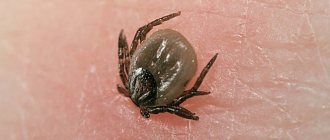Cats, along with dogs, are favorite pets. Despite the fact that a person must be responsible for those whom he has tamed, thousands of animals end up on the street every year. Kind and compassionate people try to help such poor people. And many people decide to adopt a cat from the street to make it a member of the family. From the article you can learn how to make life with a new furry friend a joy, not turn into hell, and the kitten does not end up back on the street. You will also learn what to feed the little foundling, how to care for and raise it.
Every street kitten dreams of finding a home
What to do with a street kitten first?
First of all, when you find a kitten, you need to make a plan for what to do with it. First, you can simply inspect it. For your own safety, it is better to do this with rubber gloves. Bald patches, discharge from the eyes and nose, and fleas should cause concern. A kitten from the street can easily have injuries to its paws and tail. Their inspection must be done carefully so as not to expose the baby to unnecessary stress.
The first step with a kitten that has been picked up from the street is a visit to the veterinarian. This step should be taken as soon as possible, especially if animals already live in the apartment. You will not be able to independently determine whether an animal is healthy or not unless you yourself work as a veterinarian.
"Cat distemper"
A mortal danger for a kitten is the panleukopenia virus (“feline distemper”). In the absence of timely treatment, the kitten will die in 90% of cases. The virus itself is very tenacious. If it ends up on the sofa or bed in the apartment, it will no longer be possible to get rid of it.
At the veterinary clinic, the kitten will be tested and examined for fleas, ticks and ringworm. The doctor will prescribe medications for treatment against parasites and give nutritional advice.
What to feed a stray cat from the street?
Life without a permanent roof over its head, malnutrition, and sometimes hunger for several days make the street cat unpretentious in food. But this does not mean at all that food from your table is suitable for a small kitten.
Fried and fatty foods, sausages and smoked meats, as well as fresh pork can lead to poisoning and gastrointestinal upset in a future pet.
beef or wet food. The portion should be small so that the kitten does not overeat. You should not give your kitten cow's milk, as it will most likely cause diarrhea. It is better to just give water at room temperature.
The portion for the baby should be small
Feeding your pet
The baby's first treat should be food with a wet consistency.
With the appearance of a pet, the problem of proper nutrition will arise. For the first few days, it is better to try feeding your pet wet food. In addition, you can give the cat a little kefir, low-fat cream, cottage cheese or fermented baked milk. Near the plate of food there should be a bowl filled with water. Small suckling kittens will have to be fed using a syringe without a needle. It should be filled with warm store-bought milk, previously diluted with water. After drinking the milk, the baby needs a light tummy massage. When the cat defecates, you will need to wipe the butt with a cotton swab. This should be done after each feeding, since there is no mother to monitor the baby’s condition, and he still cannot lick himself.
If you have chosen a five-month-old kitten whose body is stronger, you can feed him both dry and wet food. The main thing is that the cat receives all the necessary vitamins and minerals. It is permissible to feed an adult cat with purchased food, as well as food that is prepared independently. The diet should include veal and chicken, various offal, and low-fat fish. Cereals and fermented milk products will be beneficial.
Get rid of fleas and parasites
How to properly treat a kitten from the street against lice, fleas and ticks should be asked at an appointment with a veterinarian.
First, the kitten should be thoroughly washed with kitten shampoo. Under no circumstances should shampoo be used on humans. The substances contained in it can cause allergies in the animal. It is advisable to bathe your kitten with a helper to reduce the likelihood of injury during bathing.
After water procedures, the kitten should be wrapped in a towel, gently dried and released so that it can lick itself and dry.
When the baby is completely dry, apply special drops to the withers and rub the product in thoroughly.
A suspension is suitable for fighting worms for a kitten, since even adult animals are reluctant to take tablets. 14 days after treatment, the pet is ready for the next stage - vaccination.
Treatment against worms
It can be assumed with 100% probability that a kitten taken from the street will definitely have worms. You shouldn’t give your cat pills right away. It needs to be fed for a couple of days so that at least something appears in the intestines, and then given one of the following remedies:
- Drontal.
- Profender.
- Prosit.
- Stronghold.
- Milbemax.
Exactly ten days later the treatment is repeated. It is highly advisable to combine anti-worm measures with washing the kitten. This is due to fleas, which are mechanical carriers of parasitic worms.
Vaccination
In order for a kitten in a new family to be healthy and happy, it needs to be vaccinated. Viral diseases such as calicivirus, rhinotracheitis, viral leukemia and “feline distemper” are deadly for animals. Even a domestic cat can easily become ill and die without treatment. She doesn't even have to look for them specifically. The owner can bring pathogens from the street on shoes or clothes.
Timely vaccination is the only way to avoid fatal diseases for your beloved pet.
Be sure to ask your veterinarian about the vaccination schedule.
The kitten must have all preventive vaccinations
Toilet training
The baby should be placed in the litter tray as soon as he begins to wander around and look for somewhere to relieve himself.
Having found a suitable place for the tray, you need to pour filler or sand. Next you should monitor your pet. If kittens run around screaming, lift their tails and try to dig for something, they need to be taken to the litter box. It is possible that the work will be done on the floor or carpet. In this case, the baby should be scolded and taken to the tray. The kitten needs to remember the way to the toilet.
Limiting contact with other animals
As soon as the furry tenant is brought home, where pets already live, you should take care of a separate closed place where the kitten will spend at least a month. A new pet should not cause other animals to become ill. If you can’t allocate a whole room, you can place it in a spacious, lockable cage or glassed-in loggia. The furry resident should be completely isolated. Pets should not be allowed to interact with the new pet for the duration of the quarantine.
Temporary isolation is an important stage on the path to a new life
After treatment for parasites and vaccinations, the kitten must be kept in isolation for 21 days. For some, this path may seem too long. But this is the only way to protect old-timers at home from unwanted diseases.
Education
So, the kitten has been treated and the quarantine is over. It's time to help him get comfortable in the house. And here the owners may encounter difficulties. When the kitten lived on the street, he was left to his own devices and could do whatever he wanted: go to the toilet in any flowerbed, sharpen his claws on trees. Now the space for maneuver has changed and turned out to be unfamiliar. The owners’ task is to help the new resident quickly get used to the new place.
You need to get used to the tray right away. It should be open and large in size. First use sand or soil as a filler. These are exactly what the kitten got used to when he lived on the street. Gradually you can mix cat litter into the soil/sand. Eventually the kitten will get used to it and you can completely switch to it.
On the street, the kitten had to hide from danger. Therefore, in the new home there should be places where he can hide and be alone.
Kittens love to play. Games will help your pet quickly get used to it and begin to trust its new owners. A fishing rod toy will be a great helper. The kitten will be at a safe distance during play so that it can relax and not be afraid.
Playing with a kitten is the best way to gain trust
Don't grab the kitten suddenly. Better call. When he comes over, give him a treat and pet him. The pet should see the owner as a friend, and not as an aggressor or a source of danger.
When raising a kitten, you should not shout at it, much less hit it. You need to talk to him strictly and calmly.
If, for example, he took food into the room, you need to return it to his bowl. This must be repeated until he understands that this cannot be done.
A natural need for a kitten is to sharpen its claws. If you want to keep your furniture intact, buy a scratching post. Take the time to explain to your animal how to use it. You can spray the scratching post with catnip, which cats love. Over time, the kitten will love it and most likely will not spoil the upholstered furniture.
First purchases
I wanted to create a place for the cats before we took them home, so I made a shopping list first. Here's what came in handy:
- bed,
- food (dry food and pate for kittens),
- bowls for food and water,
- tray,
- filler,
- tray mat,
- cat litter scoop,
- game balls,
- carrying,
- scratching post
I also ordered animal shampoo and a clicker for training. We are just starting to use the clicker, and the veterinarian did not recommend washing the cats, so the shampoo has not yet come in handy.
I ordered everything except food and carrying on Ozone. For two kittens it cost 4,799 rubles with free delivery.
I had no idea what a tray should be like, what kind of fillers there are and how many bowls are needed for two kittens, so I consulted with friends and read reviews of products. I spent a total of four hours on this.
Here's my favorite review of the tray:
We bought one tray for two kittens, and overall it’s enough for now. The tray had a grate, but a cat lover we knew said that we would be too tired to wash it, so we took it off.
We made a mistake with the filler. Friends advised me to take wood or clay litter, because such litter smells familiar to cats and they get accustomed to the litter box faster. I bought a clay one, but it was too strongly scented and the cats somehow didn’t like it. So two days later we bought another one. And during this time I had to clean up after them in the apartment a couple of times.
What kindness harms street kittens?
When you see an outdoor kitten, you will definitely want to pet it or help it in some way. And the first thing that comes to mind is to feed. Don't rush to give everything you find in your bag. It is better to spend a little time, go to the nearest store and buy suitable food. Try to leave food away from large crowds of people so that the baby does not get scared and avoid meeting, for example, stray dogs. Dogs are often aggressive. They can easily hurt a kitten or even maim them in order to take food.
If you are not ready to take the kitten with you, you should not call it over, giving false hope of finding a home.
Caution when feeding a stray puppy and kitten: tips
Homeless puppy and kitten
Having picked up an animal on the street and analyzing its emaciated appearance, you will immediately want to feed your new pet to the fullest, and only then proceed with other manipulations. In fact, it is extremely undesirable to overload the “foundling’s” digestion at first. Here are some tips and explanations for why you need to be careful when feeding stray kittens and puppies:
- The baby's stomach can be weakened both from malnutrition and from existing helminths.
- It is better to start with food for small puppies/kittens.
- Do not exceed the dosage.
- If the baby has coped with the portion, you can add a little food. But there is no need to try to “shove” as much food into him as possible. It is important that it is digested well.
- Natural foods include low-fat dairy products: fermented baked milk, cream, cottage cheese.
- You should not feed your new pet fish or canned fish from the table.
- A kitten or puppy, accustomed to starving, will instantly eat everything that the new owner gives him and ask for more. But you shouldn’t give in to provocations. After all, both constipation and diarrhea, as well as vomiting and even loss of appetite, can begin.
It would be wiser to consult a doctor. Based on the condition of the animal, he will make a verdict - what and how much is better to give him.
Is it worth adopting a kitten from the street: care features
Street cats are a consequence of man's irresponsible attitude towards animals. Not all of them were born on the streets. Many were left to fend for themselves for various reasons. But whatever the reasons, they do not justify people.
Before adopting a kitten from the street, weigh the pros and cons. Think carefully about whether you are ready
- treat it (if necessary)?
- keep in quarantine?
- bring up?
- pay enough attention every day?
- ensure his safety in the apartment?
- not to offend or punish him?
- make him a full member of the family?
Devotion and love do not depend on the breed.
If you give positive answers, quickly bring the fluffy ball home. Open your heart to him. Through tenderness and care, show that the most important thing is love for your neighbor. And it doesn’t matter what his origin is.











